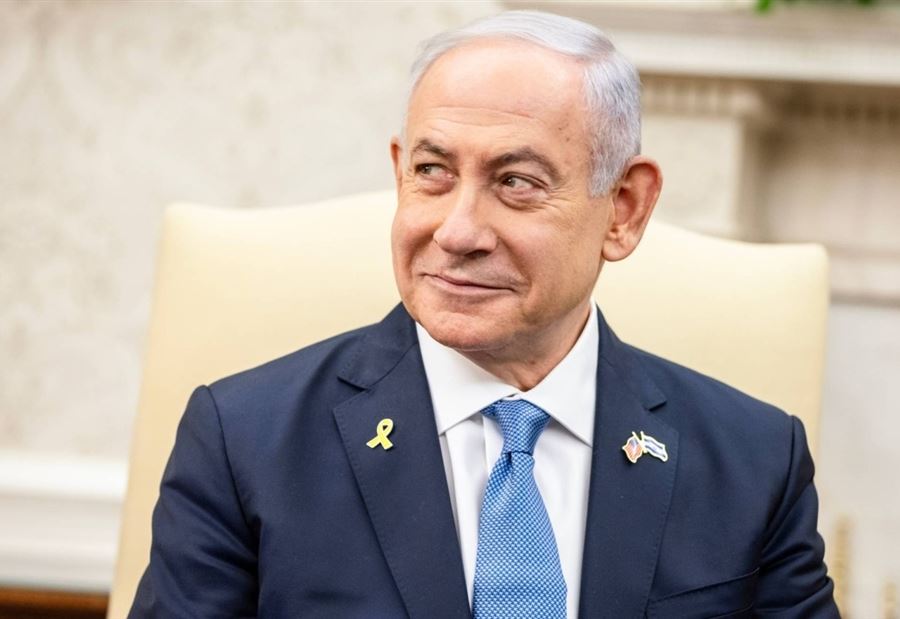“هل تؤثر حربي غزة ولبنان على اختيار نتنياهو للرئيس الأمريكي المفضل؟”
في خضم السباق الرئاسي الأمريكي المرتقب، يتطلع رئيس الوزراء الإسرائيلي بنيامين نتنياهو بعناية إلى المرشحين، إذ يرى في حربي غزة ولبنان عاملين حاسمين قد يؤثران على سياسة الرئيس الأمريكي المقبل. يشير التحليل الذي نشرته صحيفة “يديعوت أحرونوت” إلى أن نتنياهو يأمل في عودة الجمهوري دونالد ترامب إلى البيت الأبيض، خاصة بعد توتراته المستمرة مع الإدارات الديمقراطية، بما في ذلك إدارة الرئيس الحالي جو بايدن، التي وصفها نتنياهو سابقًا بأنها حاولت عرقلته سياسيًا.
ورغم ذلك، يُحذر المحللون من أن رغبة نتنياهو في فوز ترامب قد تحمل معها تحديات، حيث يُعتبر ترامب شخصية غير قابلة للتنبؤ، وربما تتعارض بعض سياساته مع أهداف نتنياهو. قد يحاول ترامب، على سبيل المثال، إحياء “صفقة القرن” التي تتضمن إقامة دولة فلسطينية إلى جانب إسرائيل، وهي فكرة يرفضها نتنياهو وائتلافه اليميني.
وكان ترامب قد كتب على منصة “إكس” مشيرًا إلى أن عودته إلى البيت الأبيض ستجلب السلام وتجنب الحرب العالمية الثالثة، بينما وجه اتهامات إلى المرشحة الديمقراطية كامالا هاريس، مدعيًا أنها قد تدفع إلى توسيع النزاعات في الشرق الأوسط. وقد أكد كل من ترامب وهاريس التزامهما بإنهاء الحرب الحالية وضمان عودة الرهائن، لكن أسلوب كل منهما قد يختلف في إدارة النزاع الفلسطيني الإسرائيلي.
التحديات المحتملة مع فوز هاريس في حال فوز هاريس، ستواجه ضغوطًا من الحزب الديمقراطي الذي يميل بعض جناحه التقدمي إلى انتقاد سياسات إسرائيل. وقد تسعى إدارة هاريس إلى تفعيل دور السلطة الفلسطينية في غزة بعد الحرب وتعزيز حل الدولتين، مما قد يُثير استياء الحكومة الإسرائيلية.
وقد تفرض الإدارة الديمقراطية مزيدًا من العقوبات على المستوطنين العنيفين وتُشدد الرقابة على المستوطنات غير القانونية في الضفة الغربية. كما قد تضغط لتغيير قرارات أممية من شأنها الحد من دور حزب الله المدعوم من إيران في جنوب لبنان.
الموقف تجاه إيران وبعيدًا عن الساحة الفلسطينية، تعتبر إسرائيل أن الموقف الأمريكي تجاه إيران سيكون نقطة محورية في العلاقات مع الرئيس القادم. ورغم أن كلا المرشحين لم يستبعدوا خيار اتفاق نووي جديد مع طهران، إلا أن ترامب يُرجّح أن يمارس ضغوطًا أكبر على إيران ويميل أكثر إلى تلبية مطالب إسرائيل الأمنية.
التوقعات بشأن الشخصيات المؤثرة في الإدارة المقبلة في حال عودة ترامب، من المتوقع أن يتولى حلفاؤه المؤيدون لإسرائيل، مثل مايك بومبيو ودافيد فريدمان، مناصب بارزة في إدارته، ما يعزز التوقعات بأن سياساته ستتماشى مع المصالح الإسرائيلية. كما يُرجح أن يحظى بدعم واسع من الأعضاء المؤيدين لإسرائيل في الكونغرس، مثل السيناتور ليندسي غراهام.
أما في حال فوز هاريس، فمن المحتمل أن تضم إدارتها شخصيات من إدارة أوباما السابقة، مثل فيل جوردون ووندي شيرمان، الذين قد يتعاملون مع إسرائيل بحذر ولكن مع سياسة أكثر مرونة في التعاطي مع القضية الفلسطينية. وتراقب الحكومة الإسرائيلية تأثير الجناح التقدمي في الحزب الديمقراطي، خاصة مع وجود شخصيات ترفع صوتها بانتقادها لسياسات إسرائيل تجاه الفلسطينيين.
وبالنظر إلى التوترات المتصاعدة مع إيران وتغيرات الساحة السياسية في الشرق الأوسط، تتجه إسرائيل إلى هذه الانتخابات بعينين مفتوحتين، مترقبة نتائج التصويت لتحديد استراتيجياتها للمرحلة المقبلة.
المصدر: سكاي نيوز عربية
“How the Gaza and Lebanon Wars May Shape Netanyahu's Preferred U.S. Presidential Candidate”
In anticipation of the upcoming U.S. presidential election, Israeli Prime Minister Benjamin Netanyahu closely watches the candidates, seeing the Gaza and Lebanon conflicts as critical factors that may shape the next American president's policies. According to a “Yedioth Ahronoth” analysis, Netanyahu favors Republican Donald Trump’s return to the White House, citing past tensions with Democratic administrations, including Joe Biden's, which Netanyahu previously accused of undermining him.
However, analysts caution that Netanyahu’s hope for Trump’s victory could present its own challenges, given Trump’s unpredictable nature. For instance, Trump might attempt to revive the “Deal of the Century,” which envisions a Palestinian state alongside Israel, an idea Netanyahu and his right-wing coalition strongly oppose.
In a recent post on “X,” Trump claimed that his return to office would bring peace, avoiding World War III, while accusing Democratic candidate Kamala Harris of potentially expanding conflicts in the Middle East. Both Trump and Harris have expressed intentions to end the current war and secure hostage returns, but each is expected to manage the Israeli-Palestinian conflict differently.
Potential Challenges with Harris' Victory If Harris wins, she will face pressures from the Democratic Party’s progressive wing, which often criticizes Israel’s policies. Her administration might work toward empowering the Palestinian Authority in Gaza post-war and revitalize the two-state solution, likely displeasing the Israeli government.
A Democratic administration under Harris might impose stricter sanctions on violent settlers and closely monitor illegal settlements in the West Bank. Pressure could also mount to revise U.N. resolutions that limit Hezbollah's role in southern Lebanon, backed by Iran.
The Iran Stance Beyond the Palestinian front, Israel sees the U.S. approach to Iran as a focal point in relations with the next president. While both candidates have not ruled out a new nuclear agreement with Tehran, Trump is expected to exert greater pressure on Iran and align more closely with Israel's security demands.
Expected Influential Figures in the Next Administration If Trump returns, allies like Mike Pompeo and David Friedman, known for their strong pro-Israel stances, are expected to hold prominent roles, aligning U.S. policies with Israeli interests. Trump would likely enjoy robust support from pro-Israel members of Congress, such as Senator Lindsey Graham.
In contrast, a Harris administration could feature figures from the Obama era, like Phil Gordon and Wendy Sherman, who might cautiously handle Israeli relations with a more balanced approach to Palestinian issues. The Israeli government closely monitors the progressive influence within the Democratic Party, as some members voice strong criticism of Israel’s policies towards Palestinians.
With rising tensions with Iran and shifting Middle Eastern dynamics, Israel eagerly awaits the election results, preparing to adjust its strategies for the coming term.
Translated by international scopes team
 International Scopes – سكوبات عالمية إجعل موقعنا خيارك ومصدرك الأنسب للأخبار المحلية والعربية والعالمية على أنواعها بالإضافة الى نشر مجموعة لا بأس بها من الوظائف الشاغرة في لبنان والشرق الأوسط والعالم
International Scopes – سكوبات عالمية إجعل موقعنا خيارك ومصدرك الأنسب للأخبار المحلية والعربية والعالمية على أنواعها بالإضافة الى نشر مجموعة لا بأس بها من الوظائف الشاغرة في لبنان والشرق الأوسط والعالم


